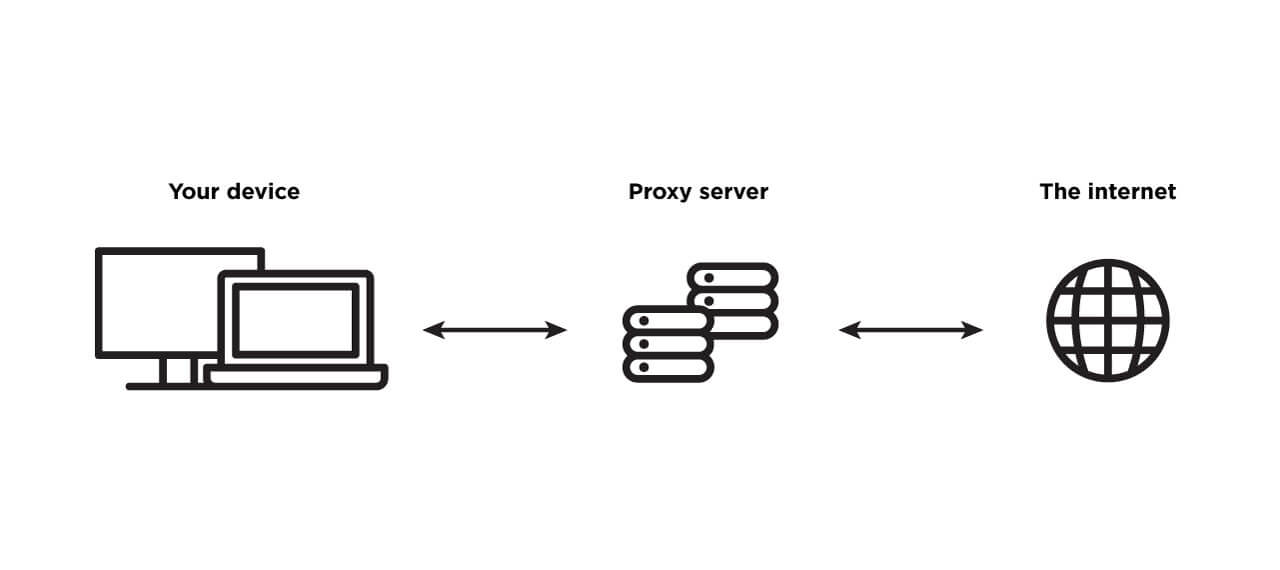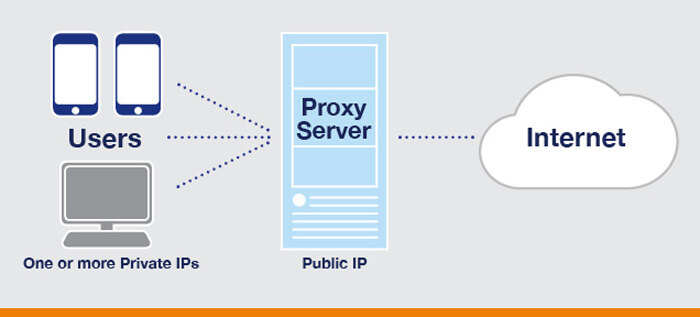What the heck is a proxy server, you ask?
You’ve come to the right place. By the time you’re done reading this article, you’ll be a proxy genius!
According to Wikipedia, the internet’s answer to an encyclopedia, ” A proxy server is a server (a computer system or an application) that acts as an intermediary for requests from clients seeking resources from other servers. A client connects to the proxy server, requesting some service, such as a file, connection, web page, or another resource available from a different server and the proxy server evaluates the request as a way to simplify and control its complexity.
Proxies were invented to add structure and encapsulation to distributed systems. Today, most proxies are web proxies, facilitating access to content on the World Wide Web, providing anonymity and may be used to bypass IP address blocking.”
In its an organic form, A proxy server is an intermediary server between the client and the internet. Proxy servers offer the following basic functionalities:
Firewall and network data filtering.
Network connection sharing
Data caching
Proxy servers allow hiding, conceal and make your network id anonymous by hiding your IP address.
The word proxy means “to act on behalf of another,” and a proxy server acts on behalf of the user. All requests from clients to the Internet go to the proxy server first. The proxy evaluates the request, and if allowed, re-establishes it on the outbound side to the Internet. Likewise, responses from the Internet go to the proxy server to be evaluated. The proxy then relays the message to the client. Both client and server think they are communicating with one another, but, in fact, are dealing only with the proxy.
A proxy server is also known as a “proxy” or “application-level gateway”. Proxy servers provide increased performance and security. In some cases, they monitor employees’ use of outside resources.
This security, however, comes at the cost of inconvenience to genuine users and slower performance.
A proxy server is used for many purposes, including:
1. To provide internal system security
2. To speed up resource access
3. To apply access policies for tracking organizational Internet use or assessing employee progress,
4. To bypass special controls, such as parental or security controls,
5. To scan for viruses and malware,
6. To circumvent regional restrictions,
7. To allow websites to make requests to externally hosted resources when cross-domain restrictions prohibit websites from linking to outside domains.
An advantage of a proxy server is that its cache can serve all users. If one or more Internet sites are frequently requested, these are likely to be in the proxy’s cache, which will improve user response time. A proxy can also log its interactions, which can be helpful for troubleshooting.
A proxy server improves Internet access speeds from a network primarily by using a caching system. Caching saves recently viewed Web sites, images, and files on a local hard drive so that they don’t have to be downloaded from the Web again. While your Web browser might save recently viewed items on your computer, a proxy server caches everything accessed from the network.




